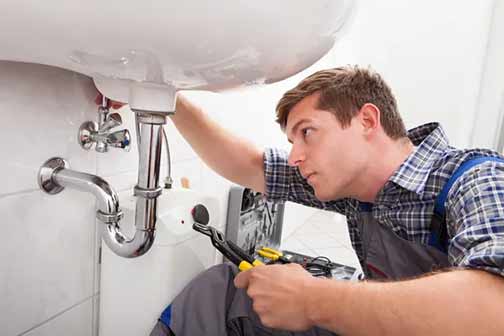
As a new homeowner in Chicago, it’s crucial to familiarize yourself with your home’s plumbing system. This includes knowing where the main water shut-off valve is located, understanding the layout of your pipes, and being aware of any existing plumbing issues. The main water shut-off valve is typically found in the basement or near the water meter. Knowing its location can help you quickly turn off the water supply in case of a leak or burst pipe, preventing extensive water damage.
Understanding your plumbing system also involves knowing the types of pipes used in your home. Common materials include copper, PVC, and PEX. Each material has its own advantages and disadvantages. Copper pipes are durable and long-lasting but can be expensive. PVC pipes are affordable and easy to install, but they may not be suitable for hot water lines. PEX pipes are flexible and resistant to freezing, making them a good choice for Chicago’s cold winters.
It’s also important to be aware of the different components of your plumbing system, such as water heaters, sump pumps, and sewer lines. Water heaters provide hot water for your home, and regular maintenance can help extend their lifespan. Sump pumps are essential for preventing basement flooding, especially in areas prone to heavy rainfall. Sewer lines carry waste away from your home, and any issues with these lines can lead to serious problems.
Regular Maintenance to Prevent Problems
Regular maintenance is key to preventing plumbing problems and ensuring your system runs smoothly. This includes checking for leaks, inspecting pipes for signs of corrosion, and ensuring that all fixtures are functioning properly. It’s also important to clean your drains regularly to prevent clogs. Using a combination of baking soda and vinegar can help keep your drains clear without the need for harsh chemicals.
In addition to regular drain cleaning, consider scheduling annual plumbing inspections with a professional plumber. These inspections can help identify potential issues before they become major problems. During an inspection, the plumber will check for leaks, test water pressure, and examine the condition of your pipes and fixtures. They may also use a camera to inspect your main sewer line for any blockages or damage.
Water heater maintenance is another important aspect of regular plumbing care. Flushing the tank annually can help remove sediment buildup, which can improve efficiency and extend the life of the water heater. Additionally, check the anode rod every few years and replace it if necessary to prevent corrosion inside the tank.
Don’t forget to maintain your home’s exterior plumbing as well. This includes inspecting outdoor faucets and hoses for leaks, cleaning gutters and downspouts to prevent water damage, and checking for any signs of water pooling around your foundation. Proper exterior maintenance can help protect your home from water damage and plumbing issues.
Dealing with Common Plumbing Issues
Even with regular maintenance, you may still encounter common plumbing issues such as clogged drains, leaky faucets, and running toilets. For clogged drains, try using a plunger or a drain snake to remove the blockage. If that doesn’t work, you may need to call a professional plumber. Leaky faucets are often caused by worn-out washers or seals, which can be easily replaced. Running toilets are usually due to a faulty flapper valve, which can also be replaced with minimal effort.
Another common plumbing issue is low water pressure. This can be caused by a variety of factors, including mineral buildup in the pipes, a malfunctioning pressure regulator, or a leak in the plumbing system. To address low water pressure, start by checking the aerators on your faucets and cleaning them if necessary. If the problem persists, you may need to call a plumber to inspect your system and identify the cause.
Water heater problems can also arise, especially in older units. If you notice that your water isn’t as hot as it should be, or if you hear strange noises coming from the tank, it may be time to call a plumber. Common water heater issues include a faulty thermostat, a broken heating element, or sediment buildup in the tank. Regular maintenance can help prevent these problems, but sometimes a replacement may be necessary.
Sewer line issues can be particularly troublesome and may require professional intervention. Signs of a sewer line problem include slow drains, gurgling sounds from your plumbing fixtures, and unpleasant odors in your home. If you suspect a sewer line issue, contact a plumber immediately to prevent further damage and potential health hazards.
Seasonal Plumbing Tips for Chicago Weather
Chicago’s weather can be harsh, especially during the winter months. To prevent your pipes from freezing, make sure to insulate any exposed pipes, especially those in unheated areas like the basement or garage. You should also disconnect and drain outdoor hoses before the first freeze. During extremely cold weather, let your faucets drip slightly to keep water moving through the pipes and prevent freezing.
In addition to insulating pipes, consider installing heat tape or heat cables on vulnerable pipes to provide additional protection against freezing. These products can be found at most hardware stores and are relatively easy to install. Be sure to follow the manufacturer’s instructions carefully to ensure safe and effective use.
Another important winter plumbing tip is to keep your home’s thermostat set to a consistent temperature, even when you’re away. This can help prevent pipes from freezing and bursting. If you plan to be away for an extended period, consider shutting off the main water supply and draining your pipes to prevent any potential issues.
Spring and summer also come with their own set of plumbing challenges. Heavy rainfall in the spring can lead to basement flooding, so make sure your sump pump is in good working order. Test the pump regularly and consider installing a battery backup system for your sump pump to ensure it continues to function during power outages.
During the summer months, be mindful of water usage, especially if your area experiences drought conditions. Water your lawn and garden during the early morning or late evening to minimize evaporation, and consider installing a rain barrel to collect and store rainwater for outdoor use. Additionally, check your irrigation system for leaks and make any necessary repairs to conserve water.

A plumber with years of experience is more likely to have encountered a wide range of plumbing issues and will be better equipped to handle any problems that arise.
Finding a Reliable Plumber in Chicago
Having a reliable plumber on hand is essential for any homeowner. When looking for a plumber in Chicago, be sure to check their credentials, read reviews, and ask for recommendations from friends and family. It’s also a good idea to get multiple quotes before making a decision. Look for plumbers who offer warranties on their work and have experience with the specific plumbing issues common in Chicago homes.
When evaluating potential plumbers, consider their level of experience and expertise. A plumber with years of experience is more likely to have encountered a wide range of plumbing issues and will be better equipped to handle any problems that arise. Additionally, look for plumbers who are licensed and insured, as this provides an added layer of protection for both you and the plumber.
Customer reviews and testimonials can provide valuable insight into a plumber’s reliability and quality of work. Look for reviews on reputable websites and pay attention to any recurring themes, such as punctuality, professionalism, and customer satisfaction. Don’t hesitate to ask the plumber for references from past clients, as this can help you gauge their level of expertise and customer service.
It’s also important to consider the plumber’s availability and response time. Plumbing emergencies can happen at any time, so you’ll want a plumber who offers 24/7 emergency services and can respond quickly to urgent situations. Ask about their typical response time and whether they charge extra for after-hours or emergency calls.
Finally, be sure to discuss pricing and payment options with potential plumbers. Get detailed quotes in writing and compare them to ensure you’re getting a fair price. Keep in mind that the lowest quote isn’t always the best option, as it may indicate lower quality work or the use of subpar materials. Look for a plumber who offers transparent pricing and is willing to discuss any concerns you may have about the cost of their services.
Emergency Plumbing Tips
Plumbing emergencies can happen at any time, so it’s important to be prepared. In the event of a major leak or burst pipe, the first step is to turn off the main water supply to prevent further damage. Next, try to contain the leak by using towels or buckets to catch the water. If you have a plumbing emergency kit, use it to make temporary repairs until a professional plumber can arrive. This kit should include items like pipe tape, a pipe wrench, and rubber gloves.
In addition to having an emergency plumbing kit, it’s a good idea to familiarize yourself with basic plumbing repairs. Knowing how to shut off the water supply to individual fixtures, such as sinks and toilets, can help you minimize damage in the event of a leak. Learn how to use a plunger, pipe wrench, and other basic tools so you can address minor issues on your own while waiting for a plumber to arrive.
Another important aspect of emergency preparedness is knowing when to call a professional. While some minor issues can be handled on your own, more serious problems, such as a burst pipe or a major sewer line backup emergency, require the expertise of a licensed plumber. Don’t hesitate to call for help if you’re unsure about the severity of a plumbing issue or if you’re unable to resolve it on your own.
It’s also important to keep an eye on your water bill for any unexpected increases, as this can be a sign of a hidden leak. If you notice a sudden spike in your water usage, check your home for any signs of leaks, such as damp spots on walls or floors, and call a plumber if you suspect a problem.
Finally, consider investing in a water leak detection system. These systems can alert you to potential leaks before they cause significant damage, allowing you to address the issue quickly and prevent costly repairs. Some systems can even shut off the water supply automatically in the event of a major leak, providing an added layer of protection for your home.